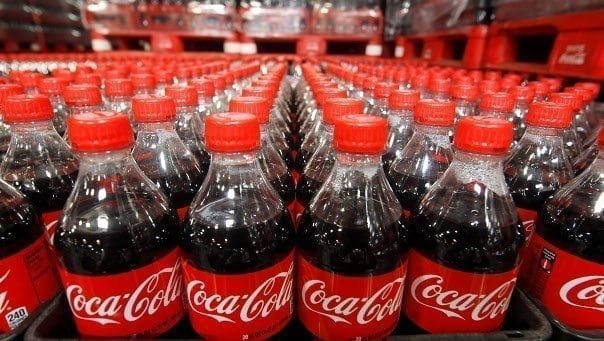The Coca-Cola Company, with the help of the American Beverage Association (ABA), is deceiving consumers about the harms of drinking Coke and other sugar-sweetened beverages, according to a complaint filed in federal court in California.
The suit contends that the beverage giant and its trade association are engaged in an unlawful campaign of deception to mislead and confuse the public about the science linking consumption of sugar-sweetened drinks to obesity, type 2 diabetes and cardiovascular disease.
Misleading consumers
The lawsuit, filed on behalf of the nonprofit Praxis Project, charges Coca-Cola and the ABA with misleading consumers about the health risks posed by sugary drinks, and claiming that there is no science linking sugar-sweetened beverages to obesity and related diseases.
Coke and the ABA executed a strategy of shifting focus away from sugar-sweetened beverages to a lack of exercise as a principal cause of the obesity epidemic, according to the suit.
The campaign also led consumers to believe that all calories are the same, when science indicates that sugary drinks play a distinct role in the obesity epidemic.
‘Coca-Cola executives have known for years that their products undermine health. Nevertheless, for years they have mounted a multi-million-dollar effort to persuade consumers that their products are benign—even healthful. We hope the end result of this litigation will be that consumers will be permanently protected from Big Soda’s fraudulent marketing.’
MICHAEL F. JACOBSON
CSPI executive director
A ‘campaign of disinformation’
The suit was filed on 04 January 2017 in the United States District Court for the Northern District of California. Praxis Project, the plaintiff, is a nonprofit represented in court by Maia C. Kats, litigation director of the nonprofit Center for Science in the Public Interest; Andrew Rainer of the Public Health Advocacy Institute and Michael R. Reese of the law firm Reese LLP.
Praxis devotes considerable resources to its advocacy on sugar-sweetened beverages—resources it could have spent elsewhere were it not for the defendants’ activities, according to the complaint.
Funding biased research
The 40-page complaint alleges that Coke’s marketing plan was sophisticated and multi-faceted. The complaint alleges that Coke covertly funded and publicised biased scientific research, substantially orchestrated a drumbeat of deceptive ABA press releases on science and health and ran false and misleading advertising campaigns.
Citing a report in the New York Times, the complaint contends that between 2010 and 2015 alone, Coca-Cola spent $120m on research and other projects aimed at confusing consumers about, or denying, the science linking health risks to soda and other sugary drinks.
False statements
The complaint also cites numerous examples of Coca-Cola and ABA officials making false and deceptive statements about sugar-sweetened drinks.
For example, Coca-Cola’s senior vice president, Katie Bayne, claims ‘[t]here is no scientific evidence that connects sugary beverages to obesity’, while former Coca-Cola chairman and CEO Douglas Ivester has said ‘Coca-Cola is an excellent complement to the habits of a healthy life.’
The ABA has stated that ‘Simply put, it is wrong to say beverages cause disease’, and a post on the ABA’s website claims ‘There is no unique link between soda consumption and obesity’.
‘Coke’s incoming CEO, James Quincey, equated sugar-sweetened beverages to any other calories, dismissing their unique contribution to the obesity epidemic by asserting such beverages contribute only two percent of calories overall.
The complaint also cites numerous deceptive statements by Coke-funded scientists, such as Dr Steven Blair, who stated that ‘there is really virtually no compelling evidence’ that sugary drinks are linked to the obesity epidemic.
Coke also paid health professionals to promote sugar-sweetened beverages, including one dietitian who suggested that an eight-ounce soda could be a healthy snack, like ‘packs of almonds’.
 Play Video about This Rock Might Just Save The World
Play Video about This Rock Might Just Save The World Play Video about Play 2 hours of rock
Play Video about Play 2 hours of rock Play Video about Play 2 hours of brook
Play Video about Play 2 hours of brook Play Video about Play 2 hours of sheep
Play Video about Play 2 hours of sheep











































